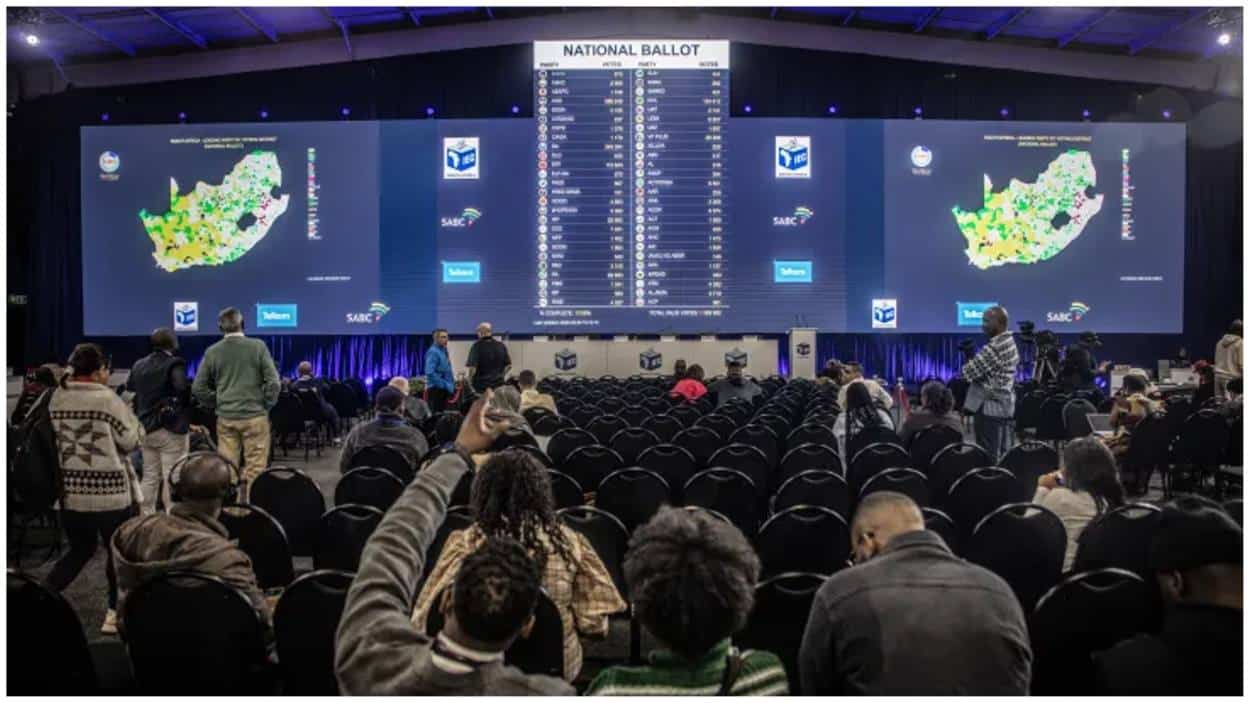South Africa’s ruling African National Congress (ANC) was at risk of losing its 30-year majority after Thursday’s elections. Preliminary results showed it leading with just 43% of the vote, down from 57% in 2019.
The Democratic Alliance (DA) followed with 25%, while the Economic Freedom Fighters (EFF) and uMkhonto weSizwe (MK), led by former president Jacob Zuma, garnered 9% and 8%, respectively.
Political analyst Daniel Silke described this outcome as a major shake-up for the ANC and the nation, which has been accustomed to ANC governance since 1994. He noted that it redraws the nation’s political landscape, introducing a new degree of uncertainty.
If confirmed under 50%, President Cyril Ramaphosa’s ANC would need to form a coalition to govern, marking a significant shift in South Africa’s democracy. Major newspapers highlighted this possibility with headlines like “SA on the cusp of a shift in politics” and “The people have spoken.”
Despite the ANC’s historical significance in ending white minority rule and implementing social and economic reforms, its long tenure has been marred by corruption, economic stagnation, and high crime and unemployment rates.
Voting saw long queues and extended hours at many polls. The Independent Electoral Commission (IEC) attributed the delays to a new three-ballot system and high urban turnout, stating that full results might take longer than usual.
Projections suggest the ANC might not reach even 42%, potentially needing to ally with larger opposition parties, though experts differ on the best partners for the ANC in such a scenario. Some speculate ties could be renewed with leftist groups like EFF or MK, while others suggest the more moderate DA as a likely ally.
This electoral outcome could lead to a national discussion on coalition formation, urged by voices within civil society seeking transparency in the process.






